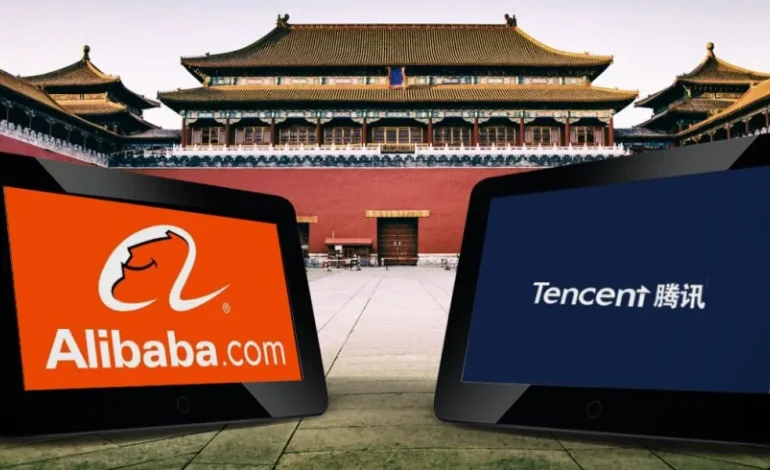China’s Cloud Wars: Alibaba vs. Huawei vs. Tencent

The battle for dominance in Asia’s fastest-growing digital infrastructure market.
The Cloud as Strategic Infrastructure
Cloud computing has become the backbone of the digital economy. From AI training to fintech, from e-commerce to logistics, every modern sector relies on scalable, secure cloud services. In China, three giants Alibaba Cloud, Huawei Cloud, and Tencent Cloud are locked in an intense battle for supremacy.
With Beijing emphasizing digital sovereignty, the outcome of this contest will determine not just market share, but who defines the architecture of China’s digital future.
Alibaba Cloud: The Early Leader
Launched in 2009, Alibaba Cloud was China’s first major player and remains the largest. It powers much of the country’s e-commerce, fintech, and AI ecosystems, serving millions of businesses.
Its strengths lie in scale, developer tools, and international presence with data centers across Asia, Europe, and the Middle East. Yet slowing growth at Alibaba Group has raised questions about whether its cloud unit can sustain momentum under rising competition.
Huawei Cloud: Resilience and Expansion
Huawei Cloud has grown rapidly since 2017, fueled by Huawei’s push to reinvent itself after U.S. sanctions crippled its smartphone and telecom businesses. Leveraging its hardware expertise, Huawei Cloud emphasizes infrastructure-as-a-service and enterprise AI solutions, appealing to government and industrial clients.
Its close alignment with state digital infrastructure projects gives it an edge in strategic sectors like energy, defense, and smart cities.
Tencent Cloud: The Consumer Gateway
Tencent Cloud taps into China’s massive gaming, social, and entertainment ecosystems, from WeChat to QQ Music. Its strength lies in consumer-facing applications and digital services, with expertise in real-time data processing for games, live streams, and fintech.
By leveraging its platform user base, Tencent offers seamless integration between cloud services and consumer apps, an edge in areas like digital payments and entertainment tech.
Cloud as Financial Infrastructure
Beyond storage and computing, the cloud is becoming a settlement layer for digital economies. All three giants are experimenting with fintech integrations:
- Alibaba Cloud supports digital marketplaces with instant payments and fraud detection.
- Huawei Cloud is piloting blockchain-based settlements in cross-border logistics.
- Tencent Cloud integrates with its payments ecosystem, enabling microtransactions at scale.
In a few pilots, reserve-backed settlement tools have been tested on cloud platforms for real-time clearing of municipal and trade payments. These experiments highlight how the cloud is no longer just a tech service, but financial infrastructure in its own right.
The Global Race
China’s cloud players are also looking outward. In Southeast Asia, Alibaba Cloud competes with AWS and Google, while Huawei Cloud pushes into Africa and the Middle East. Tencent Cloud is positioning itself as the partner of choice for entertainment and gaming platforms worldwide.
Yet geopolitical headwinds persist: U.S. allies often restrict Huawei Cloud, and Western regulators scrutinize Chinese data practices. This creates a fragmented global map where Chinese clouds dominate some regions but are shut out of others.
Challenges at Home
The domestic market is also crowded. Beyond the big three, firms like Baidu Cloud and state-backed telecom providers offer specialized services. Price wars are eroding margins, while heavy capital expenditures strain profitability.
At the same time, regulators are demanding stricter data security and compliance, adding costs to cloud providers already locked in fierce competition.
Outlook: A Cloud Triopoly?
The battle between Alibaba, Huawei, and Tencent is unlikely to produce a single winner. Instead, China’s cloud market may evolve into a triopoly, with each dominating in different niches:
- Alibaba in commerce and global expansion.
- Huawei in state infrastructure and enterprise services.
- Tencent in consumer-facing apps and digital finance.
For global readers, the lesson is that cloud computing in China is more than a tech contest; it is a strategic struggle over who controls the infrastructure of the digital economy, both at home and abroad.






